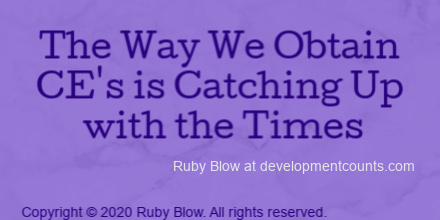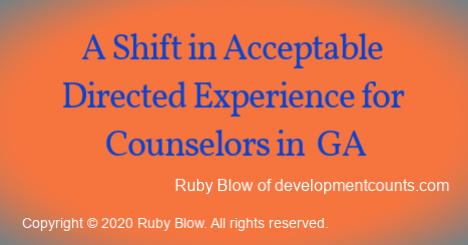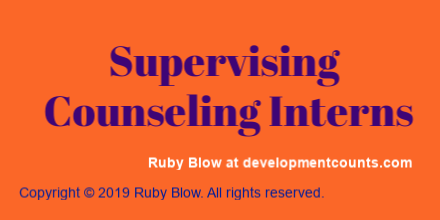Toward Counselor Parity
In recent years, the counseling licensure process in Georgia has undergone a much needed transformation. Our licensing board has made updates to the counseling licensure regulations and rules. These changes are intended to align Georgia with a number of other states in terms of licensing requirements.
Following New Regulations
October 1, 2018 marked the official beginning of several new regulations. Please note that I am not speaking on behalf of the Georgia Composite Board for Counselors, Social Workers and Marriage & Family Therapists.
I am a counselor and clinical supervisor in Georgia. I represent myself and my general information is intended to support those who are seeking counseling licensure in Georgia as well as those providing their supervision.
It is each person’s responsibility to read and follow the licensing board rules. Below are some of my observations of what will impact our profession the most as it relates to rule changes and to how counselors receive supervision.
My Reminders, Observations and General Considerations for Counselors & Supervisors
- It is important that all counselors pursuing supervision seek supervision from a qualified supervisor.
- Half of supervision can still be provided by an allied professional supervisor like a Social Worker, MFT or Psychologist who meets the years post-licensure standards of 3 years of a Master’s level, 2 years on a specialist level and 1 year on a doctorate level. However, it is my advisement that counselors pursue supervision from a qualified supervisor who is a counselor.
- Supervisors who are counselors are now required to have a supervision certification like the CPCS (Certified Professional Counselor Supervisor – a state credential) or the ACS (Approved Clinical Supervisor – a national credential). The CPCS is issued and managed by the LPCA-GA (Licensed Professional Counselor’s Association) and the ACS is issued and managed by the CCE (Center for Credentialing & Education).
- An associate counselor who makes changes to their work setting or their supervision will have to make sure they are under the new standards. Those who already had their associate counselor designation prior to the rule change are supposed to fall under the previous guidelines. However, I have advised my supervisees to try to meet the new standards. These include but are not limited to the following:
- The hours of supervision per year have risen from a minimum of 30 hours to a minimum of 35 hours.
- The hours of directed experience have risen from 600 hours per year to a 1,000 hours per year.
- 9 out of 9 course content areas must be met. This includes, of course, counseling theory and psychopathology or diagnosis/DSM class.
- Counselors who are being supervised in their work setting need to take extra care to ensure that their on site supervisor not only qualifies but also that they are actually committing to licensure supervision. Many work settings offer/require on site supervision and oversight of their contractor’s/employee’s work. They do so for the obvious reason of regulations and quality control. However, actual clinical supervision toward licensure would involve
- a signed supervision agreement;
- supervision log;
- supervision notes;
- and no more than 6 supervisees in a group. Staff meetings are not licensure supervision. They are administrative in nature as it is related to the management, quality, continuity, and organization of client services. Clinical supervision has focus on counselor development in addition to client matters. Clinical supervision is a service.
- Counselor’s who assume they are receiving clinical supervision toward licensure when they are receiving some sort of supervision in their work setting run the risk of having difficulty with getting their supervision hours documented by their “supervisor” due to assumptions and misinterpretations about what was or wasn’t the implied agreement between the two parties.
Ethics and Legal Matters
Lastly, it is vital that all clinicians exercise caution about practicing beyond one’s scope of training and supervised experience. We can add new practice specialties via training and consultation or supervision.
Too many counselors pivot post-independent licensure toward work experience or even building businesses with limited knowledge of what constitutes ethical and legal practices. Some have adopted bad habits from agencies that allowed fraudulent billing. Still others assume that what is allowed in one setting in terms of insurance reimbursement etc…is allowable in others.
Update the Board When Changes Occur
It is important for counselors and supervisors to be forthcoming and honest in their representations of information. Supervisors need to be cautious about people seeking support with board paperwork demonstrating that they have supervision. Some potential supervisees do not plan or intend to continue with you…some drop out after they have a form to submit to the board. If a supervisee stops communicating with you — follow up promptly. Don’t allow your credentials to be misused.
Supervisees are agreeing to update the licensing board within 2 weeks of a change in work or supervision. The whole contract affidavit needs to be submitted even if there is a change in one and not the other. So if the supervisee changes supervisors but not their job, they submit the part of the contract affidavit updating it with the new supervisor and the direction/work section with the words “no change in direction” written on the form.
Your Responsibility
How the board manages all of this is to be determined as we move toward the first applicants and new applicants under the rule changes. In the meantime, read the frequently asked questions that the composite board has posted on their website. Remember it is each of our individual responsibility to understand and follow the board rules and ethics. We are attesting to that in our applications to the board and in the maintenance of our licenses.
Not knowing the rules is not considered a valid excuse or explanation if you should be called before the board regarding your application.
Copyright © 2018 Ruby Blow. All rights reserved.
Share your thoughts on Linkedin, Facebook, Twitter or log in to one of your accounts below to comment. Subscribe to my YouTube channel.





